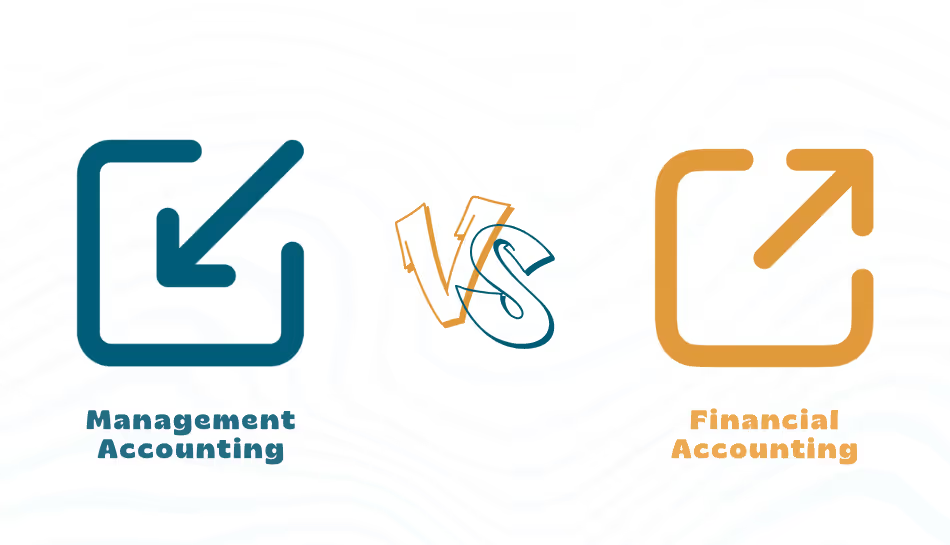Every business relies on accounting to understand how money flows, where it's being spent, and whether operations are profitable. But not all forms of accounting have the same function. The two most widely used branches-financial accounting and management accounting-differ in intent, audience, and approach. Understanding these differences helps business owners, managers, and finance professionals make wiser decisions and maintain compliance.
What is Financial Accounting?
Financial accounting basically involves the provision of financial reports with accurate representations of the company's financial position to the external users or stakeholders. It focuses on the preparation of financial statements such as the balance sheet, income statement, and cash flow statement.
The main purpose of financial accounting is to provide a correct, unified view of the company's performance for a certain period. Such reports usually go to investors, governmental bodies, creditors, and tax agencies.
Because financial accounting is regulated by legal and regulatory standards such as generally accepted accounting principles or IFRS, it operates under rigid criteria to enhance consistency and transparency.
In other words, financial accounting is the way to tell how a business did in the past and what its current financial position is.
What Is Management Accounting?
Management accounting targets internal decision-making. It provides detailed reports, forecasts, and analyses for the managers in executing plans to control and optimize business activities.
Unlike financial accounting, management accounting is not constrained by standardized formats or regulations. It is flexible and can be tailor-made for various departments or different decision-makers.
Management accountants work from data such as production costs, sales forecasts, and insights from budgeting to help executives set goals, identify inefficiencies, and make sound strategic decisions.
Bottom line: Management accounting is future-oriented and enables business to make better choices tomorrow.
Key Differences Between Financial and Management Accounting
Although both types of accounting concern financial information, they vary in purpose, audience, and detail.
- Purpose:
- Financial accounting records the past performance for external reporting.
- Management accounting focuses on current operations and future planning.
- Audience:
- Financial accounting is targeted at investors, creditors, and regulators.
- Management accounting serves internal users such as executives and department heads.
- Regulation:
- Financial accounting is governed by formal accounting standards.
- Management accounting follows no set of rules; it's tailored to business needs.
- Frequency of Reports:
- Financial reports are usually prepared quarterly or annually.
- Management reports can be generated daily, weekly, or on a monthly basis.
- Nature of Information:
- Financial accounting focuses on historical data.
- Management accounting combines both historical and predictive data.
How ERP Software Bridges the Two
Today, financial and management accounting go hand-in-hand in modern organizations, with technology binding them together. ERP software, such as Bigsun ERP, enables organizations to manage both effortlessly on a single platform.
Here's how Bigsun helps:
- Prepares financial reports in an accurate manner to meet all accounting standards.
- Real-time dashboards and forecasting tools for managerial insights.
- Monitors essential performance indicators in regard to performance.
- Integrates with the budgeting, procurement, and sales modules for a complete financial view.
- Enables management teams to make quick, data-driven decisions.
Bigsun ERP merges compliance-driven accounting with real-time operational data, providing complete financial transparency while equipping decision-makers with actionable insights.
Why the Difference Matters
More importantly, understanding the difference between financial accounting and management accounting ensures a balance in a company between compliance and strategy. Financial accounting keeps your business credible and transparent, while management accounting helps you stay agile and competitive.
With Bigsun, an integrated ERP means that small and large enterprises alike don't have to make a choice between accuracy and insight; they can get both in one place.
Final Thoughts
Both financial and management accounting play very vital roles, which complement each other. While one looks at the past to ensure accuracy and accountability, the other looks to the future in driving performance and growth. With solutions like Bigsun ERP, businesses can handle with ease both sides of accounting: maintaining regulatory compliance while using real-time financial intelligence to plan ahead with confidence.



